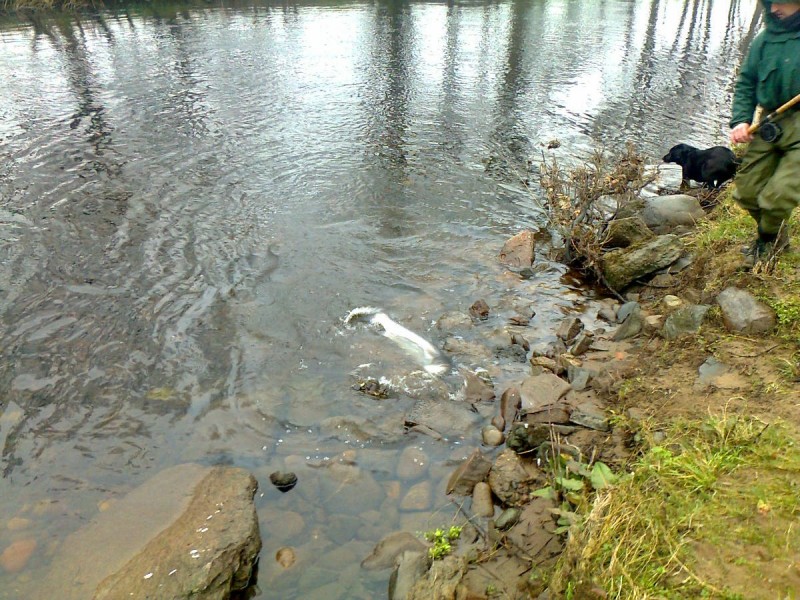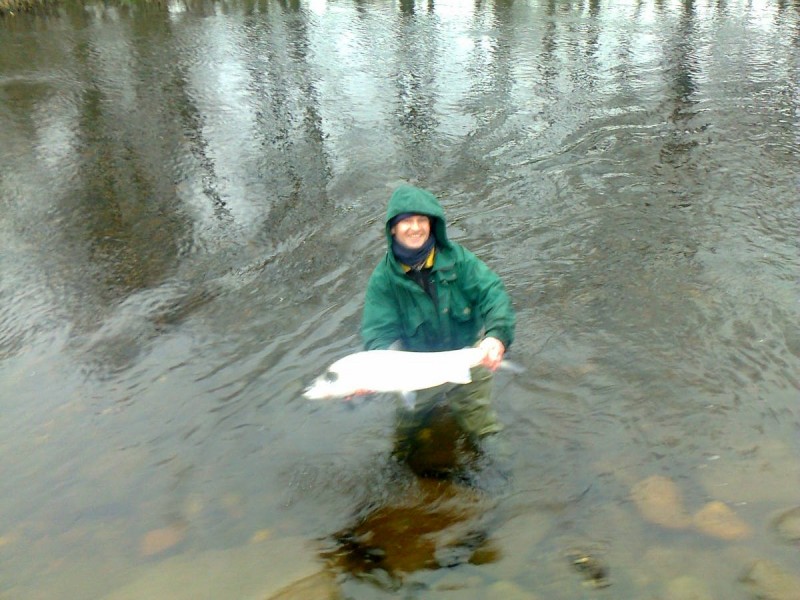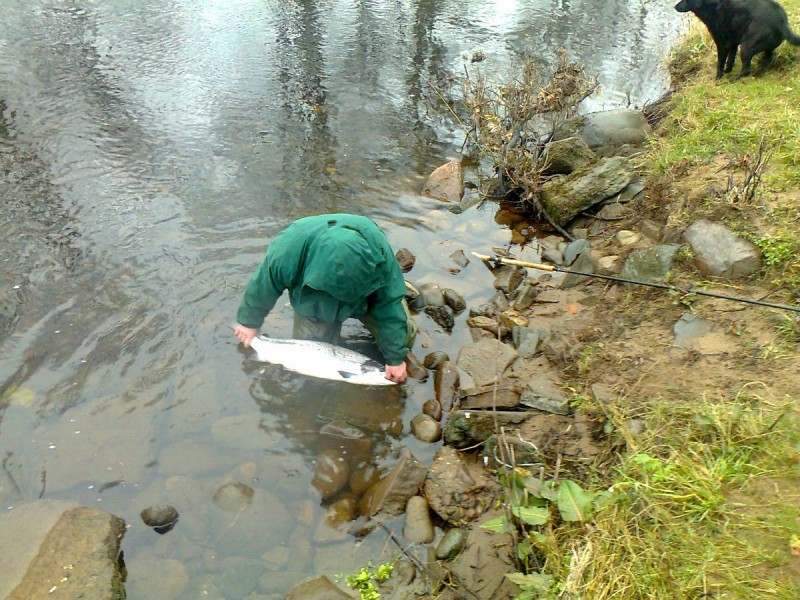A PERFECT 14lbs SPRING SALMON FROM TYNDALS POOL!
After a long morning in the office I took the two dogs for a walk down Milton Beat, where Derek was fishing through Tyndals Pool. When I first saw him he was in the middle of the lower part …of the pool, which I thought was a bit strange. It was only when I got close to him that I realised he was quietly leading a large salmon down the pool towards Willows where he was planning to land the fish.
This 14lbs spring salmon was caught and returned on Milton Beat (Tyndals to Willows) on 3 April 2014.
Derek told me that he had been too lazy to change the leader from the 8lbs nylon he had been using in the bright sunny days of last week. He wanted to be fishing with at least a 12lbs cast. He was therefore playing the salmon with some care, and at that point he had not seen the fish, despite the clear and lowish water. From my position on the high bank above I could see the dark tail and grey form of the salmon’s body. It was clearly a well-built fish.
But we soon did see the fish, and it was obvious that it was a fine salmon in the teens of pounds. No net was available and my camera had packed up, so we agreed that I would use my mobile phone and Derek would do the honours. Gradually the salmon tired. We could see its broad back and silvery, violet sheen flanks as it rolled onto its side. Its broad, delicately forked tail broke the surface and the fish came quietly to the side opposite the willows at the head of the Boat Pool. What a beautiful fish! Derek gently removed the size 10 Willie Gunn from the scissors of the hen fish, which we estimated was about 14lbs in weight.
After some point-&-press mobile camera shots the salmon lay quietly in the flow beside some rocks before quietly swimming away into the deeper water at Willows.
For me this fish represents the very best of Finavon in the spring. There is something deeply consoling about knowing that such a fish can exist and return to our little river, despite the uncertainties of climate change and the obstructions and other challenges we human beings put in its way.
It is only 2 April. If there is enough water the South Esk may show us all what this fine little river is capable of producing in the spring. There really is hope, but guarded hope of course!
God speed, you fish! Do your duty. Lay your 7,000 ova in the high burns of the South Esk’s upper catchment. Confound the sceptics and show us how resilient you and all your companions returning to our shores from the Greenland fjords can be.
TA



